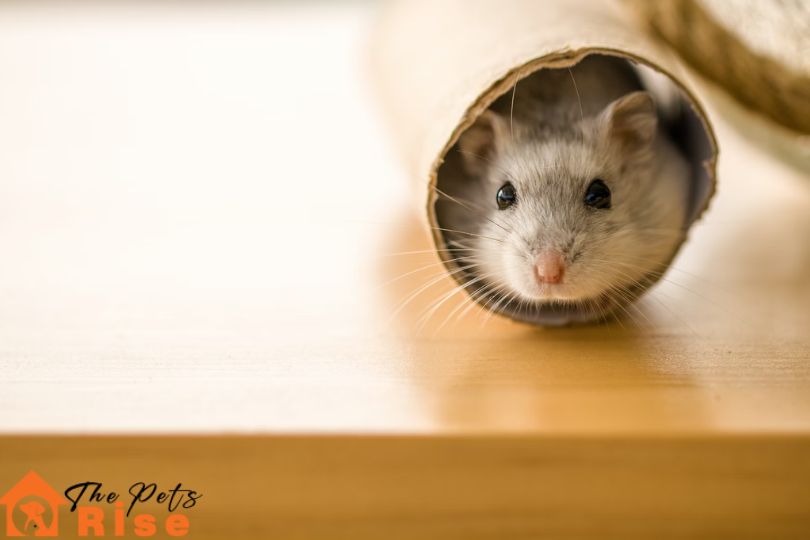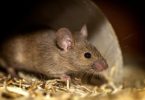Owning a pet is one of the most exciting experiences especially when it is your first time. Your house will have a sudden change in environment when you will get a small pet such as a rabbit, small cat, small breed dogs, foxes, or a hamster. However, taking care of small pets can be challenging. If this is your first time adopting a small pet then this guide for small pet care will surely be helpful to you. You can understand how you should take care of small pets.
Why Taking Care of Small Dogs is Challenging?
While some pets such as dogs, cats, and even birds with standard height can be relatively easy to maintain but their smaller counterpart can be a little challenging. There are many things that you will need to take care of from small pet food that has nutrition value, vet visits, a stimulating environment, and several other things that can be challenging to be taken care of.
Sometimes can be its size but sometimes it’s breeds and lack of knowledge. Such as a standard cat breed may not be as picky as small cats. Small cat food finding and feeding can be hard for new pet owners. This all can make small pet care a hard task. With that being said, continue reading this guide for small pet care that will let you understand some crucial parts of taking care of small pets.
Understand Your Pet’s Requirements First
This is the crucial point in taking the decision of adopting a small pet. Remember the small breeds of animals be its rodents like hamsters and rabbits to selective breeds such as teacup dogs, small cats, and small birds, they may look the same as their larger counterpart but they have slightly different requirements from the environments to diet.
You will need to consider the best puppy food for small breeds so they may not suffer malnutrition and environmental requirements for hamsters and rabbits and several other factors that will not only be helpful to provide them with a healthy and joyous environment but will help them to grow in the healthy way possible. This is why you shouldn’t act hasty and take your time before adapting the small pets. Remember, knowing their requirements will help you to become a good pet owner who will guide others too. So, be ready for certain lifestyle changes.
Preparing Your Home
Just when you are about to adopt small pets, you should first prepare your home for them. Small pets are often food driven and curious. They don’t understand your warnings and will wander around and may reach the corners of the house where they shouldn’t. So what you need to do is to consider finding any small corners of the house where they have access. They may put themselves in dangerous situations. Preparing your house is as important as getting the right rabbit food or hamster diet.
You should make sure to remove harmful objects such as poisonous foods, knives, electrical wires, etc. You should keep them away from the reach of pets. Mostly the small pets like rabbits, foxes, and hamsters stay in their enclosures. Keep them in a peaceful room at night so they can have a calm sleeping experience for the whole night. Keep in mind that whether it is small breed dogs, cats, or other small pets type, they are just like small children. You will constantly have to monitor them and make sure that they are safe.
Regular Visits to Vet
This is another crucial part to become a good pet owner. Do the regular visits to the veterinarian. Just check any other guide for small pet care and they will emphasize o regular pet visits as much as nutrition diet and a healthy environment. Given their unique health system and requirements along with their short life span, you will need to take your small pets to the vet at least once or twice in 3 months. However, this depends on the health of your pet and its vaccination schedule they should visit the vet more frequently.
Especially when they are young. However, understanding their health conditions, and small pet food requirements it is crucial to visit the vet as they age. However, some pets can be more resilient when it comes to visiting the vet. While you may observe this behavior among cats and dogs, it can be observed in small cats and small breed dogs as well. They will be too comfy in their environment that leaving it may cause stress to them. However, taking them in their carrier or small enclosure especially rabbits and hamsters may reduce their stress.
Visiting vets isnt just about their vaccination but it will let you know different things about your pet, such as knowing about the best rabbit treats and food for your rabbits. Understanding the environmental requirements and several other factors you can learn about your small pets. This can be a fun experience if the vet you are visiting is experienced and can be friends with your pet.
Healthy Food
There are two factors that are related to a healthy pet, be it a pup or other small pet type. The best puppy food for small breeds and a constant supply of fresh water. This will leave a lasting impact on the health of your small puppy. This is crucial for any pet because good and proper food will enhance their health and it is easier to fulfill their nutrition requirements. When it comes to small pet food then there can be different meal options to choose from. This can be a daunting task.
So what you will need to do is to get in touch with your vet and they can guide you about the food types, an important ingredients for your pet, and how they can help your small pet’s growth. The sooner you familiarize yourself with it, the better things will go for you. While searching for small cat food, you should look for a balanced diet that includes protein, low carbs, and fats. Protein is good for their growth but too much fat can be a problem for their body. However, they are still one of the most important ingredients in cat and dog food.
However, a fibrous diet will help them in having good digression. If you are going to buy small pet food from a reputed pet food company then you should get the formulated diet that is good enough according to the age of your pet. health conditions and activity level. And again, speaking to your vet would greatly be helpful before buying any pet food formula.
Have a Proper Identification
Smaller pets have a tendency to wander around and because of their curious nature, you can expect them to leave their enclosure and roam around. Along with the diet and health care tips, we will like to add the identification in our guide for small pet care about their identification. Anything can happen with these little fury fellas because they are prone to dashing out to door which is why giving them a proper identification is crucial.
Give them a safe collar with a tag that has your contact information of yours. Furthermore, you can go for microchipping because your pet may lose the collar. The microchip is the size of a grain electronic device that contains information about the pet. It can be scanned and mostly implanted under your small pet’s skin. Scanning can pull all the information about the pet.
Giving the proper identification will go a long way for your pet. However, keep only the updated contact information. Make sure to change the information on the chip file in the case address or phone number change.
Clean Pet and Clean Environment
Cleanliness isnt just for humans but for small pets as well. The cleaner the environment is the better they will grow. It would even double the benefit of feeding the small breed dogs as they will eat better if the environment where they are living is clean. However, this isnt just about the clean environment but clean pets as well.
You should have a pet cleaning schedule and it should also include cleaning the pet enclosure as well. Use an appropriate brush and scrub to clean them. Trim their teeth and nails to avoid any painful overgrowing. While checking a guide for small pet care, you can consult with your vet as well. to learn about the skills require to clean your small pet easily.
Spaying/Neutering
Just like you take care of the rabbit food, you will need to take care of spaying and neutering your pet rabbit as well. In fact, if you sterilize your pet then you can save them from a number of health issues. Conditions such as complicated pregnancies can cause an increasing number of homeless animals. Spaying your pet such as rabbits and kitties will be helpful in eliminating the risk of cervical cancer and ovarian cancer.
Also, it will reduce the heat among the female so they will not leave the house in search of a partner, and will not get in touch with the aggressive homeless cats. Also, they will not mark their territory for “other males” benefiting your furniture. If you Neuter your small dog then it will reduce their aggression. Also they will be less prone to roam around in the neighborhood.
This will save them from getting testicular cancer. Keep in mind that spaying and neutering is surgery and your pet will require to have general anesthesia. You may have to leave your pet overnight at the vet’s office. The vet will need to observe any other effects on the body.
Bottom Line
Small pets are a cute addition to any home. However, you should take care of them the way it supposed to be. So they can have good growth and stay healthy. From taking care of small pet food to other important elements, make sure to follow our guide for small pet care. After all, you want to become a good small pet owner.







